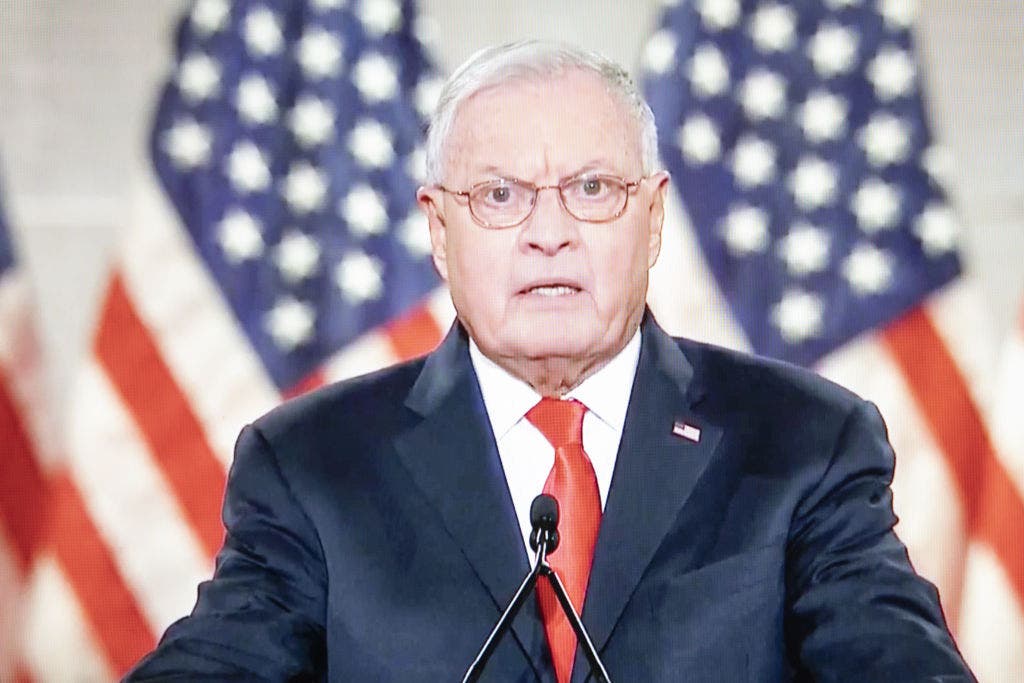Politics
Trump’s Ukraine envoy pulls no punches with Europe, says EU might not have place in Russia peace talks

1. U.S. Envoy Suggests Europe May Be Excluded from Ukraine-Russia Peace Talks
In a recent security conference in Germany, Keith Kellogg, President Donald Trump’s special envoy for Ukraine and Russia, hinted that Europe might not have a seat at the negotiating table during peace talks between Russia and Ukraine. Kellogg, a self-described realist, emphasized that too many voices could complicate and derail negotiations. He stressed that the U.S. aims to broker a deal within "days and weeks," not months, and thus needs "breathing space" to facilitate discussions without external interference.
2. European Leaders React with Concern and calls for Unity
Kellogg’s remarks have left European leaders concerned about their role in shaping the future of Ukraine and the continent’s security. Icelandic Prime Minister Kristrún Frostadóttir expressed uncertainty and worry, stating that Europe’s involvement is crucial. Estonian Foreign Minister Margus Tsahkna echoed this sentiment, asserting that Europe cannot be excluded from talks that directly impact its security and interests. These concerns highlight the potential rifts in the transatlantic alliance and the need for European leaders to assert their influence.
3. Emmanuel Macron Calls for Emergency Meeting to Address U.S. Moves
In response to these developments, French President Emmanuel Macron convened an emergency meeting of European leaders in Paris. The meeting,attended by key European heads of state and NATO Secretary-General Jens Stoltenberg, aims to discuss the implications of U.S.-led negotiations and ensure Europe’s voice is heard. The gathering underscores the urgency with which European leaders view the situation and their determination to maintain a united front in the face of increasing uncertainty.
4. Prospects for a Peace Deal Intensify Amidst Diplomatic Efforts
Recent weeks have seen intensified diplomatic activity, with President Trump engaging in separate phone calls with Russian President Vladimir Putin and Ukrainian President Volodymyr Zelenskyy. These efforts have raised hopes that a peace deal might be within reach, though questions remain about the extent of European involvement. Kellogg later clarified that the U.S. seeks to act as an intermediary, ensuring that European interests are considered, even if the primary negotiations occur between Russia and Ukraine.
5. Europe Urged to Step Up and Contribute to the Peace Process
NATO Secretary-General Jens Stoltenberg and other European leaders have called on the continent to take a more proactive role in the peace process. Stoltenberg emphasized the need for Europeans to present concrete proposals and increase defense spending to strengthen their position in negotiations. This plea for action reflects a broader recognition that Europe must assert its influence to ensure its security and strategic interests are protected.
6. The Future of the Transatlantic Alliance Hangs in the Balance
The unfolding situation has raised critical questions about the future of the transatlantic alliance. While European leaders acknowledge the importance of maintaining unity with the U.S., they also recognize the need to assert their autonomy and influence in geopolitical negotiations. As the peace process evolves, the ability of Europe and the U.S. to navigate these challenges together will be crucial in addressing not only the conflict in Ukraine but also the broader security dynamics of the continent. The White House has yet to comment on these developments, leaving many to wonder about the direction of U.S. policy and its implications for Europe’s role in the peace process.


















